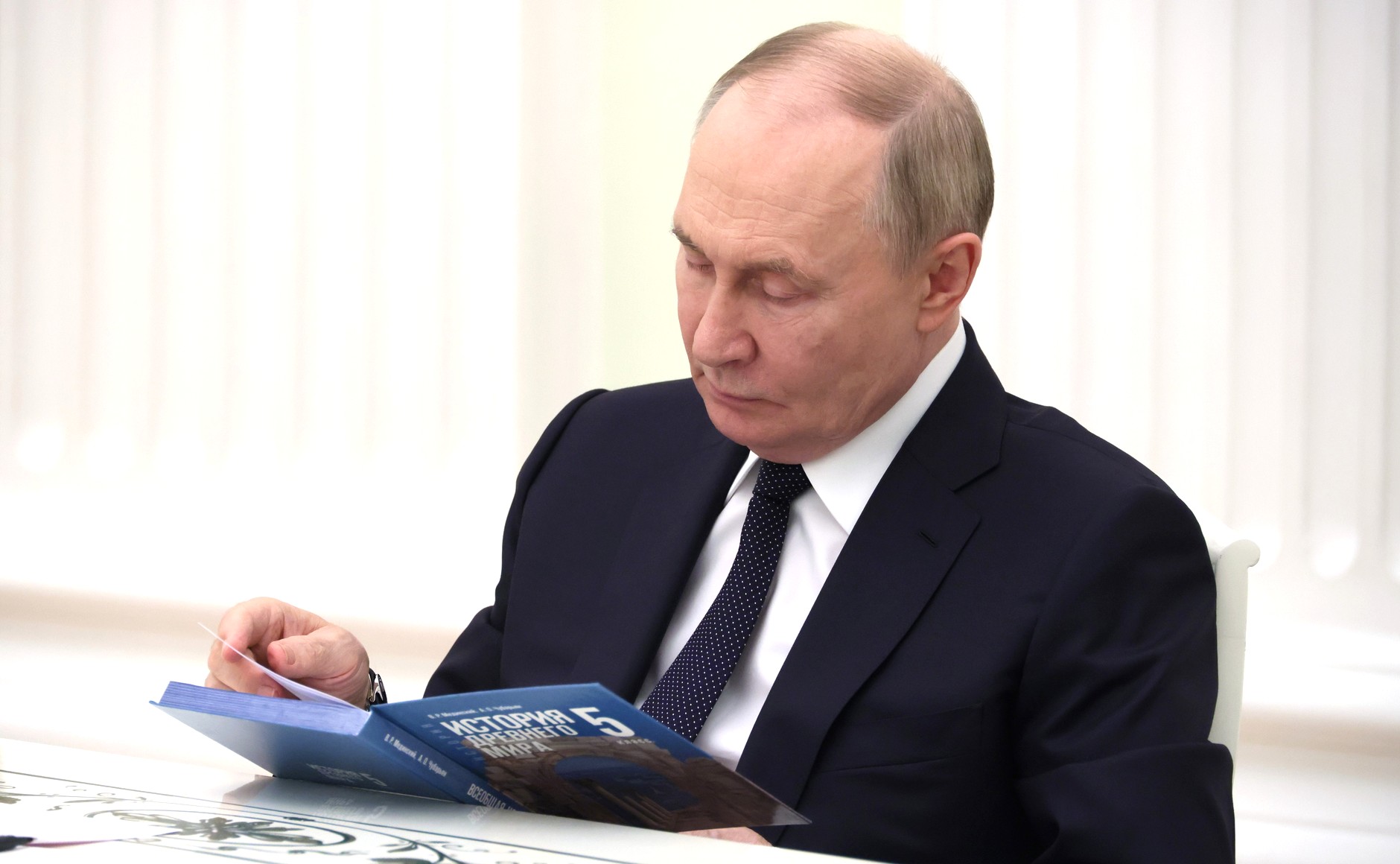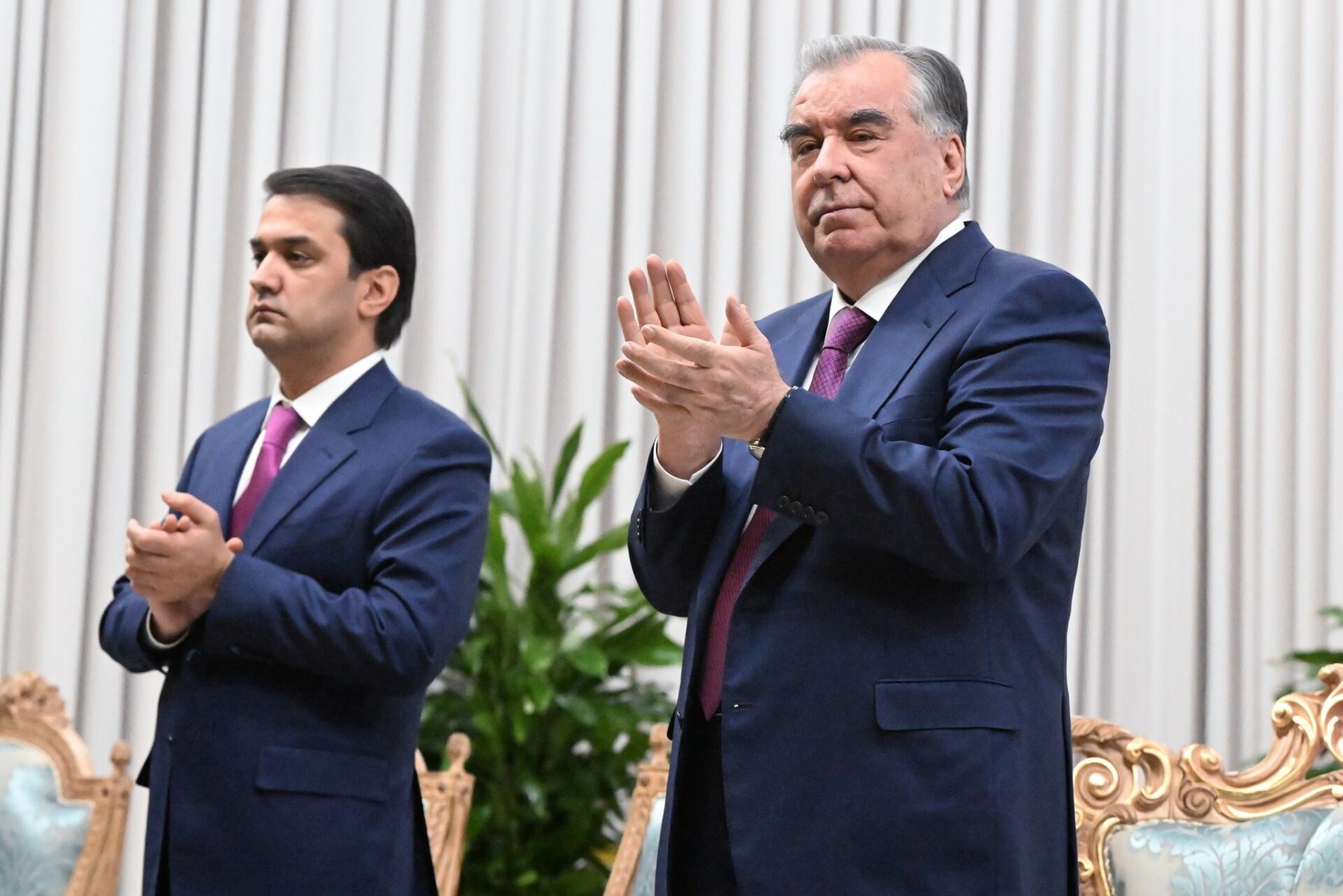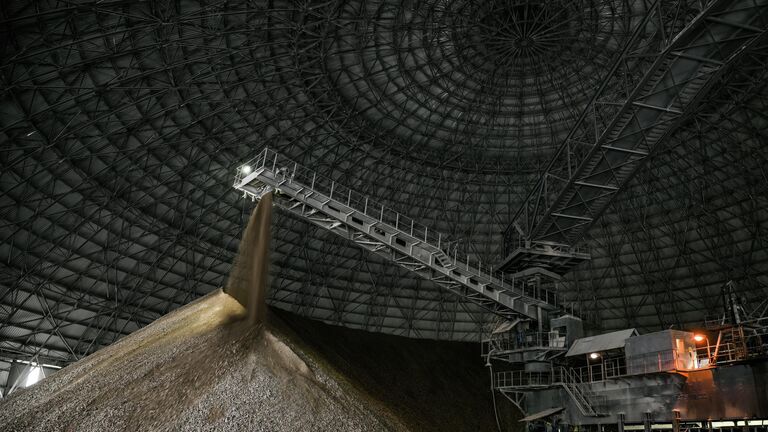
Ruslan Yamadaev Murdered in Moscow
Ruslan Yamadaev Murdered in Moscow
Ruslan Yamadaev, the older brother of Vostok (East) battalion commander Sulim Yamadaev and former State Duma deputy who received a Hero of Russia award in August 2004 from then President Vladimir Putin, was shot to death in central Moscow on September 24. As is typically the case with high-profile murders in Russia, Yamadaev’s killing has sparked a flurry of competing theories as to who was behind the deed.
Kommersant reported on September 25 that the attack on Yamadaev took place at 5:15 p.m. local time the previous day when the Mercedes S600 he was driving stopped at a stoplight on the capital’s Smolensk Embankment. An Audi 80 pulled up beside it and someone opened fired with a Kedr machine pistol. The bullets penetrated the Mercedes – despite the fact that it was armored—killing Yamadaev. Also in the car was Sergei Kizyun, the former military commandant of Chechnya who recently stepped down as first deputy commander of the Leningrad Military District. Kizyun was seriously wounded in the attack.
Vremya Novostei on September 25 quoted another Yamadaev brother, Issa, as saying that the attack on Ruslan Yamadaev took place as he was returning from an important meeting with an unidentified Russian presidential administration official.
According to Kommersant, the investigators who arrived at the scene of the crime discussed theories that were all, in one way or another connected, to the ongoing conflict between Chechen President Ramzan Kadyrov and the Yamadaev brothers. That conflict was sparked this past April by an armed confrontation in the Chechen city of Gudermes between members of the Vostok battalion, which is subordinated to the Russian Defense Ministry’s Main Intelligence Directorate (GRU), and members of Kadyrov’s security detail (North Caucasus Weekly, April 17 and 24). Still, Kommersant reported that the “generals” in charge of the investigation are looking at all possible theories concerning Yamadaev’s murder, including that it was the result of a “razborka,” or settling of scores, connected to a business dispute, or of a vendetta by friends or relatives of Vostok battalion victims.
All of the Yamadaev brothers—including Badrudin, besides Sulim, Ruslan and Issa —essentially went “underground” following the confrontation between Vostok members and Kadyrov’s guards in April, Kommersant reported. The newspaper noted that Badrudin and Sulim were put on the Chechen government’s wanted list and that Kadyrov had publicly called all the Yamadaev brothers criminals and enemies of the Chechen people. According to Kommersant, Sulim Yamadaev was taken off the wanted list after he and other Vostok battalion members “distinguished themselves” during the five-day war with Georgia in August. Soon after that, however, Sulim Yamadaev was discharged from the Russian armed forces and “clearly stopped being a real threat for official Grozny,” particularly given that he could face life in prison for the murders and kidnappings allegedly committed by the Vostok battalion in Chechnya, the newspaper reported. Still, Kommersant noted that Sulim Yamadaev had expressed fears that he could end up like Movladi Baisarov, the former commander of the Gorets special unit of the Federal Security Service (FSB), who was shot to death in Moscow in 2006 by Chechen police officials (Chechnya Weekly, November 22, 2006).
Kommersant quoted an unidentified close friend of the Yamadaev brothers as saying that “Khalid,” as Ruslan Yamadaev was known in Chechnya, was the “brains of the opposition to Kadyrov.” The source added: “Sulim is a real force, but he did everything his older brother told him to do. To take out Khalid means to neutralize Sulim for a time and then afterwards to get to him.” Kommersant’s source said that Sulim Yamadaev had lately tried not to appear in public and switched apartments several times. Kommersant reported that while Ruslan Yamadaev did not use bodyguards, he always had high-level military officers with him—something that he thought was a guarantee of safety.
Kommersant’s source also said that the “special operation against enemies of official Grozny” did not start with Ruslan Yamadaev’s murder, but on September 17, when Bislan Elimkhanov, commander of the Zapad (West) special battalion, was seriously wounded in an attack in Grozny’s Starpromyslovsky district. “I heard about the events in Moscow,” Elimkhanov told Kommersant from a military hospital. “They also wanted to kill me; my men literally shielded me with their bodies.” However, Elimkhanov refused to discuss any theories concerning the attack on him, saying it was not a subject for a telephone conversation.
Meanwhile, Issa Yamadaev stated publicly that Ramzan Kadyrov may have been behind his brother Ruslan’s murder. “My family has information that he is preparing reprisals,” Kommersant quoted Issa Yamadaev as telling journalists on September 24.
Vremya Novostei on September 25 quoted Issa Yamadaev as saying that Ruslan Yamadaev had left politics to spend more time with his family but remained greatly concerned about the Vostok battalion’s fate. According to Issa Yamadaev, the meeting that Ruslan Yamadaev and Sergei Kizyun had with the Kremlin administration official just before they were shot concerned the battalion. He also said that there had recently been a growing number of attempts to convince Vostok battalion members to join units controlled by Kadyrov, using both enticements and threats. “And while everyone who wanted to betray [the Vostok battalion] already left it, the attempt to influence the soldiers did not end. The threats increased recently,” Issa Yamadaev told Vremya Novostei. He said that threats against Ruslan and Sulim Yamadaev had become constant, and that around two months ago, two carloads of relatives of “Wahhabis” killed in fighting with the Vostok battalion were sent from Chechnya to Moscow for the purpose of killing Ruslan and Sulim Yamadaev. Issa Yamadaev told Vremya Novostei that his family informed the FSB and GRU about these “Wahhabi” hit squads, but that nothing was done.
Leonid Slutsky, first deputy chairman of the State Duma’s International Affairs Committee, who worked on the committee with Ruslan Yamadaev, told Kommersant he knew there was bad blood between Yamadaev and “the Chechen president’s entourage” but added that as far as he knew, the conflict had subsided in recent months. “Therefore I rule out the possibility that someone from Ramzan Kadyrov’s entourage was involved in that [Yamadaev’s murder],” Slutsky said. Konstantin Zatulin, the first deputy chairman of the State Duma’s Committee on CIS Affairs and Compatriots Abroad, told the newspaper he was sure there would be “many versions” put forward for the murder, including “the well-known conflict between Kadyrov and the Yamadaev brothers, but said he would warn against “rashness” in drawing conclusions, given that the conflict between Kadyrov and the Yamadaevs was very widely known and someone could have used it to “destabilize” the situation in Chechnya.
Kommersant reported that as of late on September 24, investigators were starting to put the theory that Ruslan Yamadaev was killed by Chechen “siloviki” connected to Ramzan Kadyrov on the back burner and thought that he was probably killed as the result either of a business despite or a vendetta. The newspaper quoted a law-enforcement source as saying that Yamadaev had controlled gambling establishments and commercial property in Moscow and reportedly had stakes in several large-scale projects. “They have been trying to squeeze him and other Chechens out of here from a long time, so it was most likely a contract killing resulting from a business conflict,” the source said. According to Kommersant, some sources suggested Sulim Yamadaev was the intended target of the attack, given that the brothers used the same car (which has darkened windshields) and often traveled the same route. “Sulim was a suspect in dozens of criminal cases launched in connection with instances of murder and attacks,” a source told the newspaper. “And he was probably the target of a hunt, not his brother. A relative of those murdered may have been trying [to?] take vengeance on him.”
Kommersant asked Abubakar Arsamakov, whose two brothers were allegedly kidnapped and murdered by members of the Vostok battalion in Chechnya in 2007, to comment on the theory that Ruslan Yamadaev was the victim of a vendetta. “I extend my condolences to the family and friends of Khalid; I am sure, that he was killed by the enemies of Russia,” he said.
First Deputy Federation Council Speaker Aleksandr Torshin said there may be a Georgian connection to Ruslan Yamadaev’s murder, given that the killers may have thought Sulim was driving the car at the time of their attack and that Sulim commanded Vostok battalion members during the war with Georgia. According to Torshin, the Vostok battalion members under Sulim Yamadaev’s command performed “brilliantly” in “repulsing the Georgian aggression in South Ossetia.” Torshin, who is a member of the Russian parliament’s commission on South Ossetia, said the “Saakashvili regime” thus had good reason to hate Sulim Yamadaev.
Torshin also said he did not rule out that Ruslan Yamadaev’s murder was aimed at destabilizing the situation in Chechnya on the eve of its parliamentary elections, which are set for October 12. He said he doubted it was the result of a power struggle between the Yamadaevs and Ramzan Kadyrov, given that the Yamadaevs did much to support Kadyrov’s father, the late Akhmad Kadyrov, and that “it is not in the tradition of the Chechen people to raise a hand against friends of the family.” Torshin also said that he was convinced that the murder was not in Ramzan Kadyrov’s interest. “Kadyrov totally did not need this; someone wanted to set up Kadyrov this way, to hang this bloody crime on him,” he said.
Viktor Ilyukhin, deputy chairman of the State Duma’s Committee for Constitutional Legislation and State Building and a member of the Communist Party of the Russian Federation (KPRF), said the theory that Georgians were behind Yamadaev’s murder was the least plausible. The most likely version, he told Interfax, was a business dispute, while the second most likely was the conflict between the Yamadaevs and Kadyrov.
Newsru.com on September 25 quoted Aleksandr Gurov, a member of the State Duma’s Security Committee and the United Russia party, as calling Ruslan Yamadaev’s murder “criminal-political” and adding: “Judging by the way they followed Yamadaev’s car, the way the crime itself was carried out, the perpetrator had a lot of practice—the kind that certain kind of people from certain kinds of services have.” The fact that a well-known person was killed in broad daylight in central Moscow is a “challenge to the authorities,” he said. “The criminals were basically saying: we do whatever we want.” However, Gurov said he doubted Kadyrov was behind the attack, given that the Chechen president had to understand that suspicion would fall on him and that it would be seen as a challenge to the federal authorities. Gurov said the murder was most likely the result of a business dispute.
Liberal Democratic Party of Russia (LDPR) leader Vladimir Zhirinovsky said Yamadaev’s murder was probably connected to a dispute over the distribution of high-level posts between representatives of different clans in Chechnya.
RBK Daily on September 25 quoted Dmitry Oreshkin, head of the Mercator Group, a Moscow-based think-tank, as saying of Yamadaev’s murder: “There is an 85-percent probability that this was done by the ‘kadyrovtsy’. The Yamadaev clan controlled Gudermes and opposed Kadyrov.” Oreshkin said that this latest murder of a Chechen in central Moscow is evidence of the “Caucasus-ization” of life in Russia—a development, he said, which has been completely predictable given that that the “model of order established by the federal leadership leads to this.” Oreshkin said that Moscow had made a mistake in giving the Chechen leadership carte blanche to act with no restraints. “If the Kremlin will not be able to pay $1.5-$2 billion in payoffs [to the Chechen government] annually, Kadyrov will easily set off [in the direction of sovereignty],” he said. “He will take away the oil wells and nationalize the oil companies. And this will happen very soon. And Russia will not be able to stop him, given that no federal power structures remain there. Vostok is being safely squeezed out, and the remaining siloviki are directly subordinated to Ramzan.”


